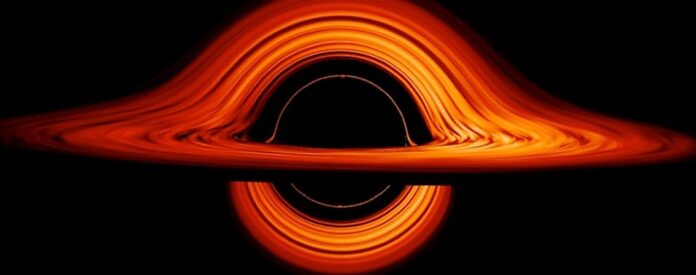Revolutionary Findings by an International Team of Astronomers
Recent research by a team of 17 eminent astronomers hailing from nine countries has put forth an astonishing hypothesis – black holes could be the primary source of dark energy, which accounts for a staggering 68% of the Universe. In a landmark study spearheaded by the University of Hawaii and featuring researchers from the United Kingdom, the team postulated a notion that links the growth of black holes to the expansion of the Universe, known as “cosmological coupling.”
Cracking the Conundrum: What is Dark Energy?
The mystery of dark energy, a form of energy that is ubiquitous but invisible, has confounded scientists for decades. Observations of celestial bodies have led to the inference of its existence, but the origin and nature of this elusive energy remain shrouded in obscurity. While regular matter makes up a mere 5% of the Universe, dark matter comprises 27%, with dark energy accounting for the remainder of 68%.
Unveiling the Paradigm-Shift: The Theory of Cosmological Coupling
The team of astronomers delved into the cosmic history spanning nine billion years, scouring for evidence to support the groundbreaking theory of cosmological coupling. After extensive calculations, they concluded that black holes could potentially account for the entire amount of dark energy measured in the Universe today. While the concept that black holes possess vacuum energy is not novel, this latest research assumes that this energy and the mass of black holes would escalate over time as the Universe continues to expand.
Unraveling the Mechanism: The Role of Black Holes in Dark Energy
When the Universe took shape with the Big Bang, its energy spurred a rapid expansion, propelling galaxies away from each other. It was initially presumed that this expansion would gradually slacken due to the effects of gravity. However, in the late 1990s, the Hubble Space Telescope revealed that the Universe’s expansion was, in fact, accelerating. To account for this, it was proposed that a “dark energy” was pushing things apart more powerfully than gravity pulled them together. The theory of cosmological coupling proposes a plausible explanation for this enigma.
Implications of the Revolutionary Hypothesis
If the cosmological coupling theory is validated, it would resolve one of the most fundamental quandaries of modern cosmology. It would also revolutionize our understanding of black holes and their role in the Universe. Furthermore, this theory circumvents the mathematical quandaries that plague some studies of black holes as it eliminates the need for a singularity at the center.
Further Research: The Path Ahead
While this revolutionary hypothesis shows immense promise, much work remains to confirm it, both through sky observations and theoretical research. Nevertheless, this paradigm-shifting discovery opens up a new pathway to approach the puzzle of dark energy in the Universe.
In Conclusion: The Quest for Understanding Continues
The recent revelation that black holes could be the source of dark energy is an electrifying development in the field of cosmology. It has the potential to unravel one of the most perplexing mysteries of the Universe and could provide a fresh perspective on the nature of black holes. While the theory of cosmological coupling undoubtedly requires further research and investigation, it represents a significant milestone in our ongoing pursuit to understand the Universe’s enigmas.














